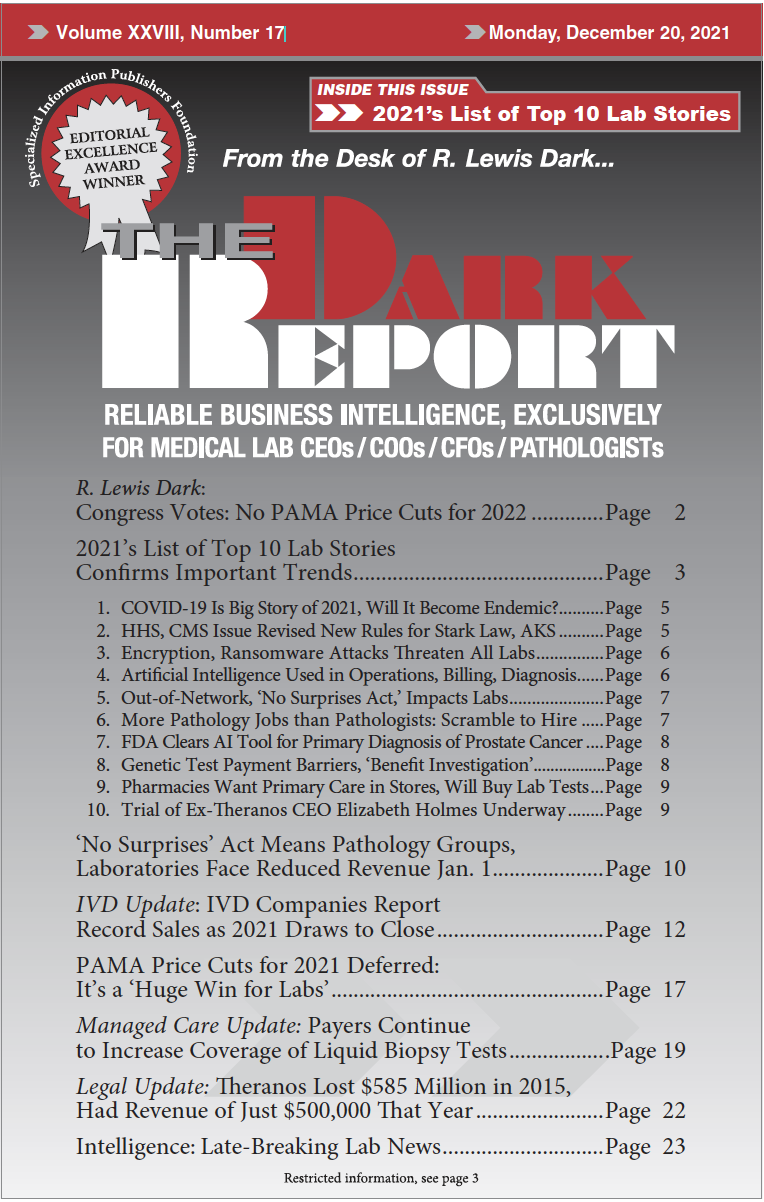TWO BIPARTISAN VOTES IN THE U.S. HOUSE OF REPRESENTATIVES AND SENATE will save clinical laboratories from another year of deep payment cuts imposed under the Protecting Access to Medicare Act of 2014 (PAMA). “This is a huge win for clinical labs,” said Erin Will Morton, Senior Vice President for Washington, D.C.-based CRD Associates. Morton represents …
PAMA Test Price Cuts Deferred: It’s a ‘Huge Win’ for Labs Read More »
To access this post, you must purchase The Dark Report.


